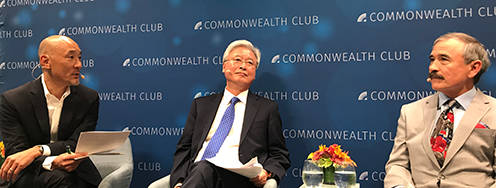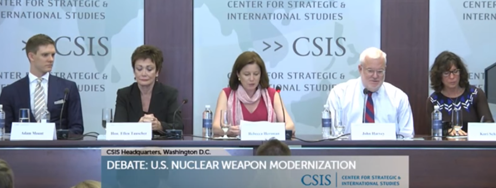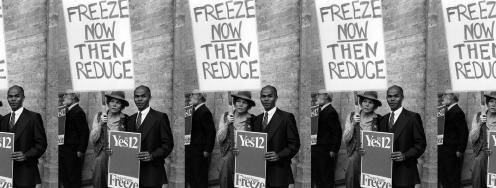Building a World Without Nukes
“Any jackass can kick down a barn," former US speaker of the House Sam Rayburn used to say. "It takes a carpenter to build one."
Officials in the Bush administration took an almost sadistic pleasure in tearing down the security institutions constructed by their predecessors. Their policies a disaster, they left America more isolated, with more serious conflicts and crises than at nearly any time in its history.
Barack Obama is now patiently rebuilding. Sometimes the new architecture is revealed in a burst, with a speech in Prague outlining the transformation of America's nuclear policy, or a speech in Cairo resetting America's relations with the Muslim world. But most often it moves slowly, like a carpenter carefully joining two planks. Nothing dramatic, until you pull back and look at the work accomplished over time and realise something new is rising. Other nations see this enterprise and, like good neighbours, are coming to help.
The past two days at the United Nations, culminating in a special UN security council session, have been remarkable. Obama consolidated international support for the nuclear agenda he first unveiled in Prague and embedded its principles in international law with the unanimous approval of a sweeping UN resolution.
"The historic resolution we just adopted enshrines our shared commitment to a goal of a world without nuclear weapons," Obama said. "And it brings security council agreement on a broad framework for action to reduce nuclear dangers as we work toward that goal."
Obama's opponents will predictably denounce the agreement as weak, naïve and dangerous. They get bonus points if they can work in "appeasement". Others will point out that this is just a paper pact. Obama understands these reactions. "We harbour no illusions about the difficulty of bringing about a world without nuclear weapons," he said. "We know there are plenty of cynics, and that there will be setbacks to prove their point. But there will also be days like today that push us forward – days that tell a different story."
The UN resolution advances equally the three main pillars of the non-proliferation regime: disarmament, non-proliferation and peaceful use. It further commits those nations with nuclear weapons to reduce them and work toward elimination. It restores several US positions abandoned by the previous administration, including a commitment to ratifying the nuclear test ban treaty.
Some of its most significant clauses raise the barriers to other countries getting nuclear weapons, urging states to require that any technology they sell a country for peaceful use be returned if the state turns it to weapons use. For the first time, there will be a legal and diplomatic basis for international action against nations who "game" the system – legally amassing nuclear facilities, then leaving the non-proliferation treaty and pumping out bombs rather than fuel rods.
Here, Obama struck a chord similar to the position of his predecessor: "International law is not an empty promise, and treaties must be enforced."
His approach is picking up support. Gordon Brown announced that Britain would cut its nuclear forces by 25%, building only three new nuclear submarines to replace the four currently in service. Dmitry Medvedev moved closer to tougher sanctions on Iran. "Sanctions rarely lead to productive results, but in some cases sanctions are inevitable," the Russian president said on Wednesday. New Japanese prime minster Yukio Hatoyama said: "I highly approve of President Obama's courageous leadership in nuclear non-proliferation and disarmament. … We will work together with the United States toward a world without nuclear weapons." His remarks rebut nuclear hawks in the US who claim that if the US reduces its nuclear arsenal, Japan will doubt the US defence commitment and build its own nuclear weapons.
This "extended deterrence" myth is used by some officials writing the US nuclear posture review to justify maintaining thousands of US nuclear weapons. On Wednesday, Obama seemed to speak from the UN podium directly to these officials: "We will complete a nuclear posture review that opens the door to deeper cuts and reduces the role of nuclear weapons." In other words: "Listen to what I am saying. Do not undercut me."
This is an architect with a purpose and a plan. He means to build his structure strong and enduring. It looks like he will have plenty of help.



